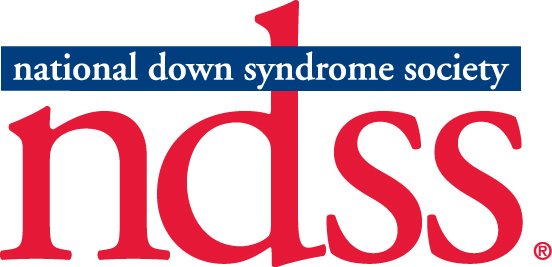Advocacy Resources


NDSC and NDSS have created this toolkit for advocates on 14(c).
On December 4th, 2024, the Department of Labor issued a Notice of Proposed Rulemaking (NPRM) that would phase out the practice of paying people with disabilities below minimum wage (“subminimum wage”) under Section 14(c) of the Fair Labor Standards Act. Specifically, the rule would stop employers from being able to apply for new 14(c) certificates and would help businesses that currently use 14(c) certificates have a one-time three-year extension to transition from sheltered workshops to competitive integrated employment. The public has until January 17, 2025 to submit comments to the Department to let them know whether or not they support the proposed rule and have any suggestions for its implementation.
Click here to download the PDF – NDSC Advocacy Toolkit for Self-Advocates
Post-Election Analysis (Jan 24, 2017)
Slides – NDSC Post Election Analysis
Recording – click here to sign in
ESSA 3-Part Series ~ What You Can Do to Impact Implementation
Presented by NDSC, NDSS & DSAIA
Jan 12, Part I – recording
Jan 19, Part II – recording
Jan 26, Part III – recording
The Every Student Succeeds Act (ESSA)
What YOU Can Do to Impact ESSA Implementation
Presented by Ricki Sabia, NDSC Senior Education Policy Advisor and Heather Sachs, NDSS Vice President of Advocacy & Public Policy on October 25, 2016
Slides – joint-ndsc-ndss-essa-overview-webinar-final
Webinar video – https://www.youtube.com/watch?v=t8C5f93A9_Y&feature=youtu.be
Strategies for Successful Public Policy Advocacy
Powerpoint – NDSC policy webinar 2015
Disability Law in Education
Policy Documents
NDSC Letter of Support Full Funding bill
Disability letter to ED_IEPGuidance_11-15-21
Final NDSC Comments on Sec of Ed grant priorities 08 21
CCD Letter Cardona priorities-July 30 Final
NDSC Comments on Equity RFI final
NDSC comments NAEP School Survey 2021
NDSC questions for Sec of Ed nominee Cardona hearing
Recommendations to the Biden U. S. Department of Education Transition Team
2021 Advocacy Info on COVID-19 Education Funds
Letter on Eskelsen Garcia Ed Sec nomination 12 16 20
ASC Parent Guide to School Reopening
NDSC CARES Act Equitable Services Comments.07.20.20
OSEP Dispute Resolution QA Part B- NDRN summary
NDSC Paperwork Reduction Pilot Comments
NDSC & Advocacy Institute info on CARES funding for SWD
NDSC comments on SPP & APR 4-20-20
Analysis of IDEA Waiver Requests
NDSC Policy Brief on Compensatory Education for Students with Disabilities 5-26-22
NDSC and Think College Comments on Title IX Regulations 9-12-22
NDSC Comments on Department of Education IDEA Determinations 9-23-22
TIES- Summary of articles on inclusion outcomes final 10-21-22
Letter to Congress on Banning Electrical Stimulation Devices 12-2-22
NDSC Comments to HELP Committee on P.L. 107-279 4-17-23
Parent briefs from the TIES Center, co-authored by Ricki Sabia
TIES Brief #1 TIES Brief #2 TIES Brief #3
NDSC comments on Annual Determinations 08-15-19
Joint Statement on Maintaining the Least Restrictive Environment Requirements
NDSC-IDEA-Implementation-Study-Comments-6-11-19
NDSC-Results-Driven-Accountability-Brief-5-20-19
First Circuit FAPE Amicus Brief
State-defined.Alternate.Diploma.Tips.for.Advocates
2017-10-05 Endrew – Amicus (as filed)
ESSA State Plan Review Guide & Advocacy Tips – June 2017 (by NDSC and The Advocacy Institute)
RM Former Officials et al amicus brief – as filed 10 30 17
Analysis of Draft ESSA State Plans (by NDSC and The Advocacy Institute)
Click here to get the most updated plans for each state
ESSA State Plan Advocacy Guide
Topics for Non-Regulatory ESSA Guidance 5-17-16
Four Advocacy Tips For ESSA Implementation 2.11.16
NDSC letter support for TCIEA Senate version_2021.11
NDSC statement re USCCR 14c report
NDSC Comments to Dept of Labor on paid leave
NDSC’s testimony before US Commission on Civil Rights to support phaseout of 14(c) subminimum wage
NDSC’s Comments Supporting 14(c) Phaseout for Department of Labor’s Online National Dialogue
NDSC Comments on House Energy and Commerce Republican’s Disability Policy Proposal
NDSC Applauds Introduction of the Stop the Wait Act
NDSC comments to CMS on Alzheimer drug coverage
Coalition letter – medications in emergencies
2021 7 12 comments on CMS IFR re vaccination in congregate facilities
NDSC comments to SSA on the Frequency & Notice of Continuing Disability Reviews (CDRs)
NDSC-Response-to-SSA-RFI-02-01-18
NDSC testimony for Graham-Cassidy FINAL 9-24-17
CCD Dental Access Letter 3-24-22
CPSD Urges Congress to Include ABLE Age Adjustment Act in Tax Package
NDSC Thanks Congress for Passage of the ABLE Age Adjustment Act
